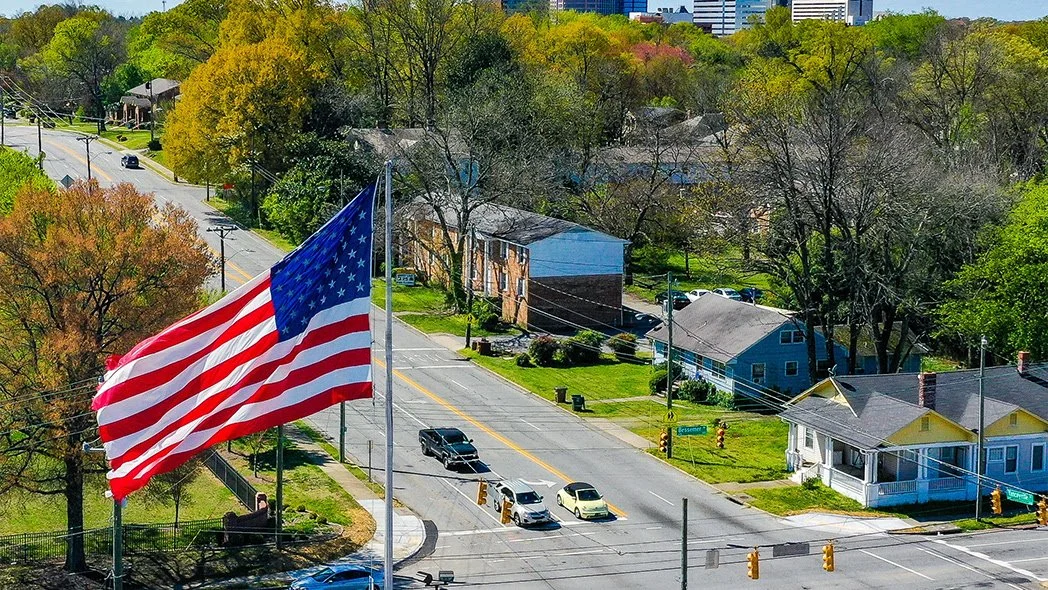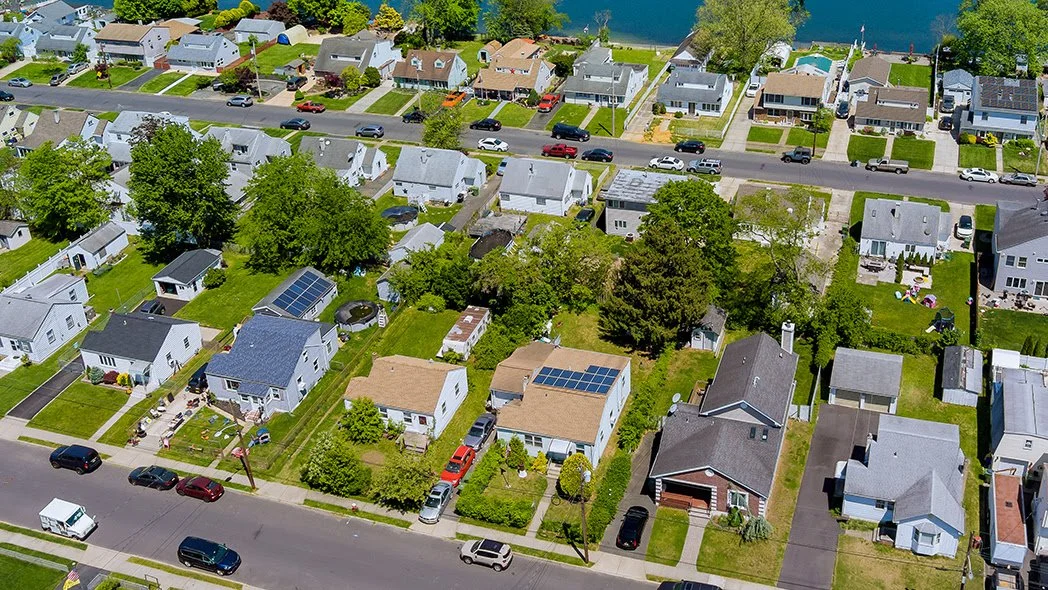How Title Insurance Works in Georgia Real Estate
Title insurance fees and attorney laws in Georgia usually blindside homebuyers who are already deep into the buying process. Buyers have no idea they'll need these two things until they're about 3 weeks away from their closing date, and by then, the settlement statement has already landed in their inbox with a whole lot of numbers they weren't expecting to see. The attorney part throws buyers - Georgia law actually says you need to have one present at closing, and it's something most other states don't mandate.
These costs add up fast, and they hit you at the worst possible time - right when you're already stretching every dollar for your down payment, inspection fees, moving costs, and all the other costs that pile up during the home-buying process. Georgia makes this whole situation even more tricky because the state has its own particular way of handling title insurance that doesn't match how it works in most other places around the country, and those differences directly affect the amount of cash you need to have ready at closing. The entire process needs multiple parties, different types of policies, and a whole bunch of laws that all have to align just right before you're able to officially call that property yours.
The sticker shock is completely understandable - buyers have a hard time with this all the time. Homebuyers don't even know title insurance exists until they're already emotionally invested in a property, and backing out would mean losing their earnest money deposit. For an average Georgia home, you're looking at around $2,400 just for the title insurance policies, and it's a lot of money on top of everything else. But here's why it actually matters - when title problems do come up (and they do), the average loss runs about $106,000 - it's not a chance anyone wants to take with their biggest investment! The entire process brings in attorneys and title insurance firms working in tandem to make it completely certain that, as you buy a property, you're receiving clean, unencumbered ownership that nobody can challenge later.
Here's how title insurance protects your Georgia property investment!
Problems That Title Insurance Can Prevent
The Fulton County property fraud ring from 2018 is a perfect example of how severe the damage can be. Dozens of homeowners were just going about their everyday lives as criminals forged documents and sold their homes to other buyers. These weren't careless homeowners either - they'd all done everything right when they bought their properties in the first place. The fraud happened anyway, and none of them saw it coming until it was too late.
Title searches are supposed to catch these problems, and they usually do a decent job. But even the most complete and careful search can still miss big problems. A forged signature from 30 years ago might appear completely valid in the county records that everyone relies on. Or maybe someone's great aunt who passed away back in 1985 never actually signed over her legal share of the property to anyone else. Issues like these can sit there undetected for decades and hide in plain sight in the public records until eventually somebody decides to come forward and make a claim against your home.
Georgia courtrooms see these exact scenarios all the time. A relative nobody's heard from in decades shows up with documents claiming that they deserve part of the property. Or an old contractor who worked on the house 20 years ago files a lien that somehow never showed up in any previous title searches. Either way, homeowners find themselves in court desperately trying to prove that they actually have the right to live in their own homes.
The emotional toll can be devastating when somebody questions your ownership rights. Many homeowners have been faithfully making mortgage payments for years and have built their entire lives around their home. Then a stranger walks in and claims the property actually belongs to them, and you'll have to hire attorneys just to defend your right to stay in your own house. The legal bills come straight out of your own pocket when you don't have title insurance coverage in place, and that's true even if the court eventually decides in your favor and you win the case.
Why Georgia Requires Attorneys for Real Estate
Georgia works with these real estate transactions differently from most other states, and if you're not prepared for it, the process could look pretty strange. The state has made this extra step mandatory since the 1990s because legislators wanted to give buyers more protection. A home is the biggest financial choice most people ever make, so the state figured that an extra layer of protection couldn't hurt.
Your real estate attorney is your legal guide for the entire transaction, and they're the ones who work directly with the title company to make sure everything about your property is legitimate. A lot of real estate attorneys in Georgia actually double as title agents, too, and can make the whole process much smoother. The Georgia Bar Association watches these transactions closely to make sure everyone follows the laws. Title businesses in most states can run the whole closing process by themselves - no attorneys needed in the room or anything like that. Georgia operates differently, though, and the state says that you need a lawyer to review every estate deal that goes through.
Georgia has this attorney requirement for a few solid reasons, and the whole requirement makes a lot more sense after you learn how property laws are in this state. Property ownership here can get messy in ways that most buyers would never see on their own. Heir property is one perfect example of where situations get tricky fast. A qualified attorney knows all the red flags to watch for and can catch problems way before they cost you big money.
Timber rights present another layer of complication that's fairly unique to Georgia. The person who owns the land might not actually own the trees growing on it - those could belong to somebody else completely. As an automated title search probably won't flag these kinds of split ownership situations, an experienced estate attorney will know to investigate them all the way through.
Every once in a while, buyers convince themselves that they can find a way to get around the attorney requirement and save a few $100 on their closing costs. This almost never works out well for them. Without the right legal representation at closing, you could miss some big title defects or property problems that will cost you $10,000s to resolve later.
The Two Types of Title Insurance
Title insurance in Georgia works in a way that tends to confuse a lot of buyers, especially if they've bought property in other states before. 2 different types of policies are available, and the way that Georgia treats who pays for what is actually pretty unusual compared to most other places in the country.
Georgia has this interesting tradition where the seller is the one who pays for the owner's title insurance policy. Coming from another state, this probably sounds completely backwards to you because almost everywhere else does it the other way around. As the buyer, you're responsible for the lender's title insurance policy, and this seems like a strange setup to a lot of buyers when they first hear about it.
These 2 policies actually protect very different interests and cover very different types of problems. A recent case in Cherokee County shows why these 2 policies matter. The property owners found out that their fence was built 3 feet over onto their neighbor's property line. Because they had owner's title insurance, the policy covered all their legal fees and the costs to fix the boundary dispute. A lender's policy wouldn't have done anything for them in that situation because the mortgage wasn't the problem at stake.
Even if you have an owner's coverage in place, your lender is still going to insist on their own separate policy. Georgia has some particular foreclosure laws that give lenders certain rights, and they want those rights protected no matter what. When a title problem shows up later, they need to have their own coverage for their investment. They're not going to trust your policy to protect their money.
The coverage amounts work differently, too, and that's another aspect that confuses buyers. Your owner's policy is based on what you paid for the property, but the lender's policy only covers the loan amount. As the years go by and you pay down your mortgage, the lender's coverage gets smaller and smaller. But your owner's coverage amount never changes.
These 2 policies have one important limitation, though - they only protect you from problems that already existed at the time you bought the property. The title search process is what finds those possible problems and helps everyone understand what the policies actually need to protect against.
Major Title Problems Found in Georgia
Title searches in Georgia can show some pretty unexpected problems that buyers never see coming. Property taxes are probably the biggest landmine out there, and they catch buyers all the time. Georgia actually lets counties foreclose on properties and sell them at auction after only 1 year of unpaid taxes. DeKalb County deals with this more than most other areas because property owners don't always know when their payments are due or how much they actually owe, and before they know it, they're in a tough spot.
Construction and renovation work throughout the state brings a whole different set of complications for buyers. Georgia law gives contractors a full 90 days after they finish their work to file a lien against a property if they haven't been paid. What that means in real terms is that you could close on a house this week and then get slapped with a contractor's lien 4 weeks later for work that the previous owner authorized but never paid for. Metro Atlanta runs into this problem all the time because there's plenty of renovation work and new construction activity throughout the area.
Property boundary disputes are another big problem, especially in Georgia's older neighborhoods, where the original property lines aren't always easy to figure out. Many of these properties still depend on the ancient metes and bounds system for their legal descriptions instead of the modern survey coordinates that we use these days. These old descriptions reference landmarks like "the large oak tree" or "the creek bed" that vanished from the area 50 or 60 years ago. When two neighbors can't agree on where one property ends and the other begins, the whole sale process comes to a standstill until somebody can sort it out.
Rural areas throughout Georgia face a very tough situation with what's known as heirs' property. Families have been passing down the land to their children and grandchildren for generations without ever going through the right legal channels to pass along the ownership. Everything seems fine until a buyer shows up with an offer, and then relatives start coming forward from all over the place to stake their claim to a part of the property. Literally thousands of parcels across the state are tied up in these informal inheritance arrangements right now.
One more problem that can take them by surprise involves timber rights on their property. This problem pops up all the time in areas that were once rural farmland but have since developed into suburban neighborhoods. A previous owner could have sold the timber rights to a logging company 20 or 30 years ago as a separate transaction from the land itself. Now you own the land, and somebody else has the legal right to come harvest any trees on it whenever they want, and there's nothing you can do to stop them!
How the State Controls Title Insurance Costs
Title insurance costs in Georgia are regulated by the state Insurance Commissioner, who sets the rates that every company has to charge. You won't be able to save any money by calling around for a cheaper premium.
The price you'll wind up paying is based directly on the property value. A $300,000 home somewhere like Cobb County will probably cost you around $1,500 for owner's coverage. A $150,000 property out in rural Tift County might run closer to $900. The premium just scales up with the buying price, and since the rate structure is regulated by the state, there's no way to get around it.
One aspect that tends to throw buyers off is the payment schedule. You only have to pay for title insurance once at closing - it's not an annual bill like your homeowner's policy. The amount can still feel pretty high when you're already paying all the other closing costs on your settlement statement.
Buyers who need both policies (owner's and lender's) actually have a way to cut down on the total cost. Georgia lets you get what they call a "Simultaneous Issue Discount" when you get the policies at the same time. Most buyers have no idea that they should even ask about this discount. But it can knock a few hundred dollars off your total closing costs.
You might also want to look into enhanced coverage if your property has any known complications. Maybe there's an old easement dispute that never got completely resolved, or some questions about where exactly the boundary lines fall. The base rate will still be regulated by the state. But these add-ons give you extra protection for those particular problems. The state's pricing laws are designed to stop companies from overcharging customers and also to make sure they have enough reserves to pay out claims when title problems eventually surface.
Moving to Atlanta?
We've covered a lot of ground about title insurance, and at this point, you're probably seeing the whole real estate process a bit differently.
Once you get an understanding of how title insurance works and why it matters, you can walk into your real estate transaction with more confidence. You'll know just why that attorney needs to be at the closing table, and you'll get what you're actually paying for with those search fees on your settlement statement. But it protects you for decades if that's how long you own the house. The laws that feel tedious or unnecessary are there because, at some point in Georgia's history, a homeowner went through an absolute disaster that these protections would have prevented.
As time goes on, that title insurance you bought gets even more valuable as Georgia continues growing and changing the way it's been. Properties are changing hands faster than they used to, and developments are going up everywhere, and with each passing year, the odds of some forgotten claim or lien from decades ago popping up just go higher. The premium that you paid one time at closing continues to protect you year after year, quietly running in the background like a security system for your property rights, guarding against problems that might not show up for years or decades later.
Georgia's real estate market can be complex. But the Justin Landis Group knows just how to work through every part of your home-buying process - which includes all the title insurance aspects we just covered. Our team has years of local expertise and the right connections to make your transaction smooth from start to finish. Contact the Justin Landis Group, and we'll help you find the Georgia home that matches just what you're looking for.







